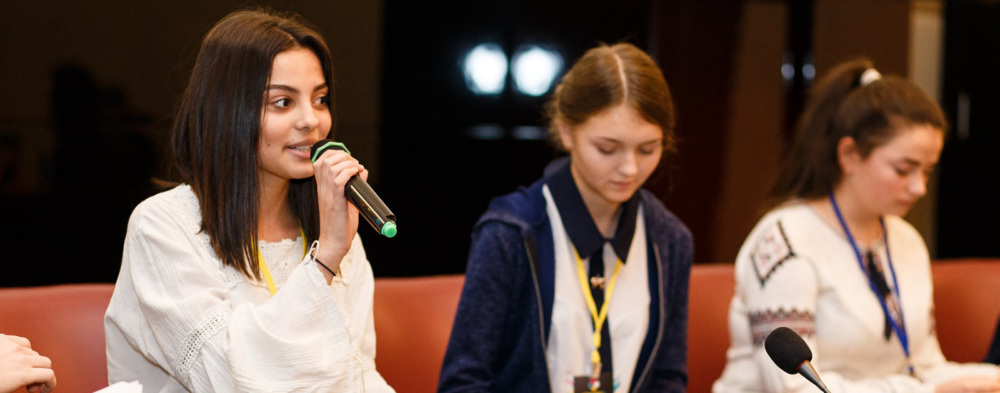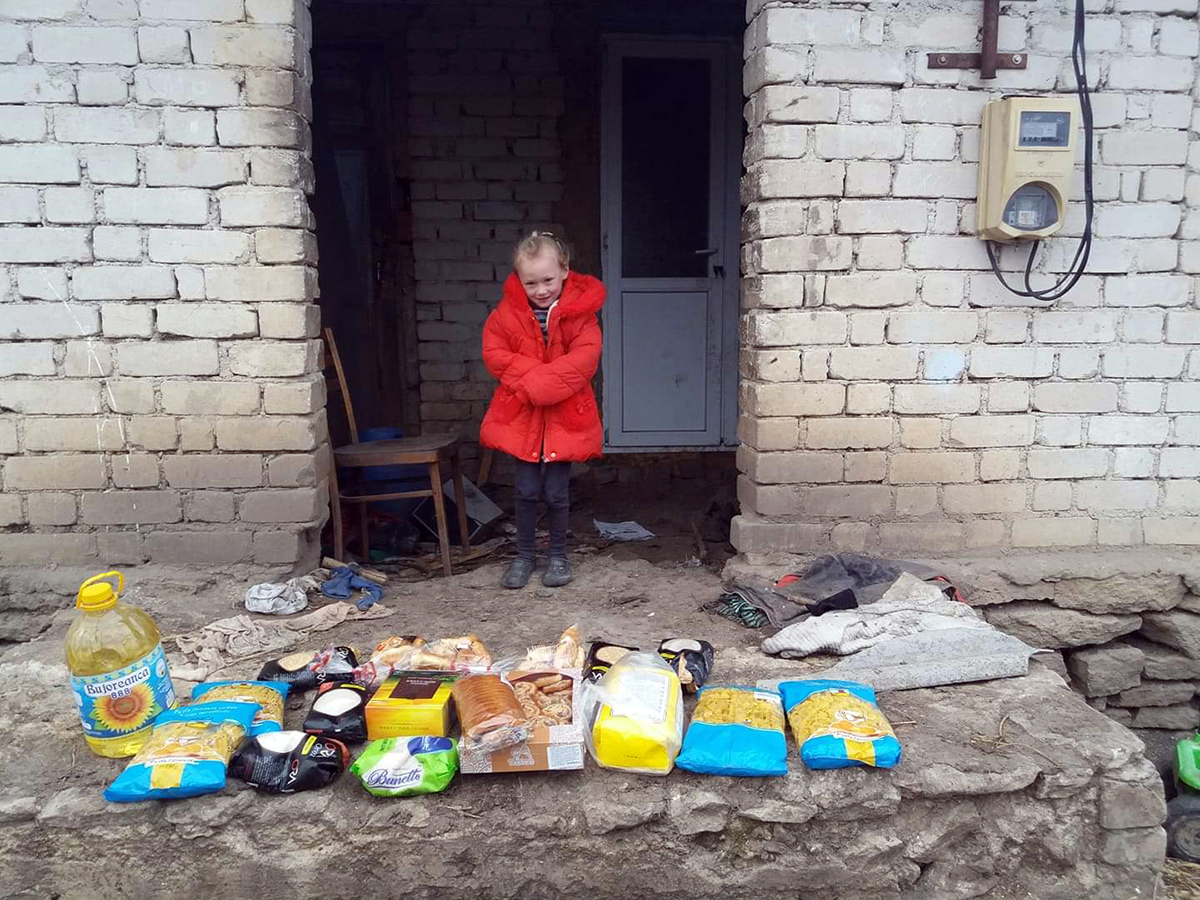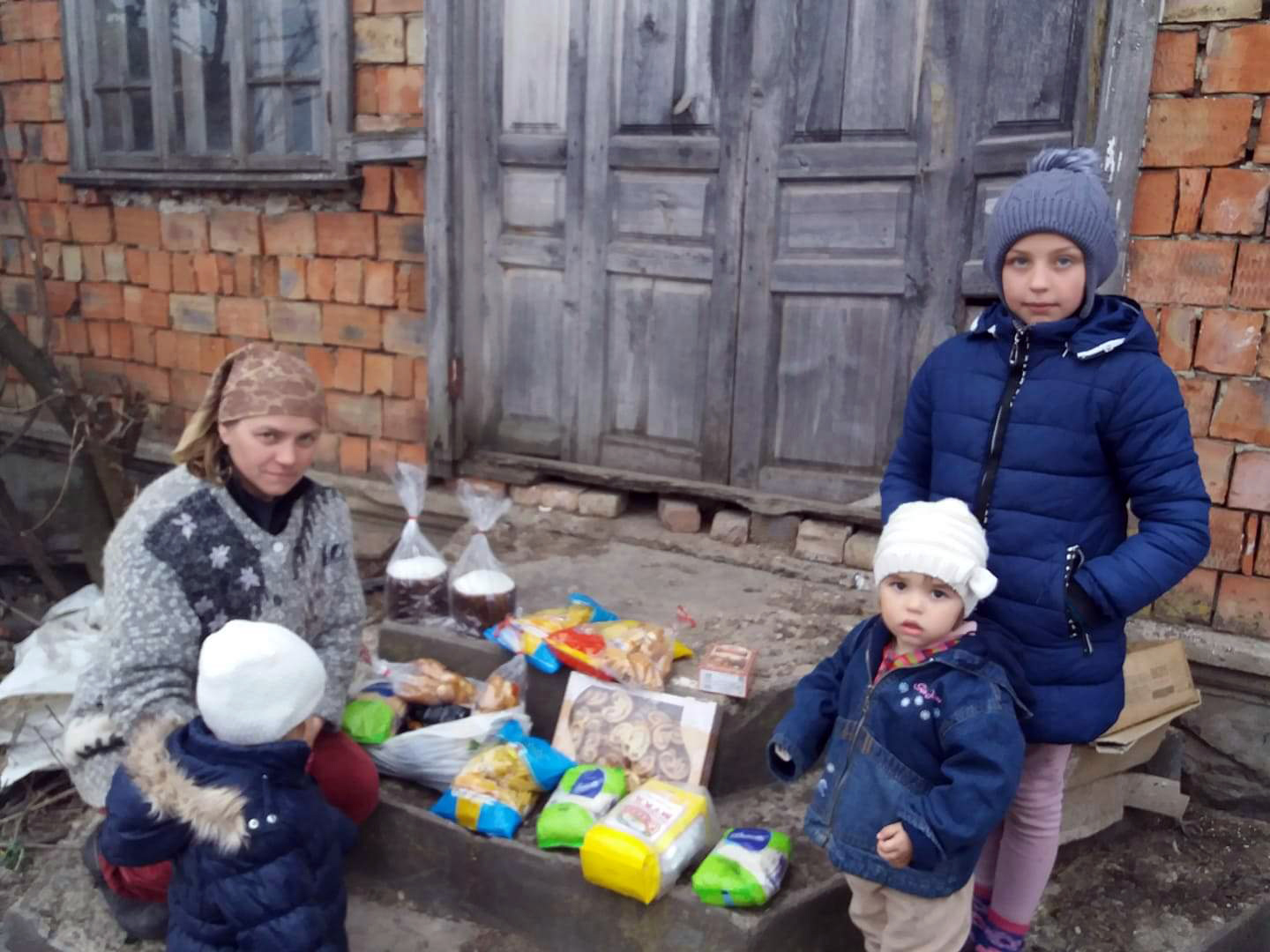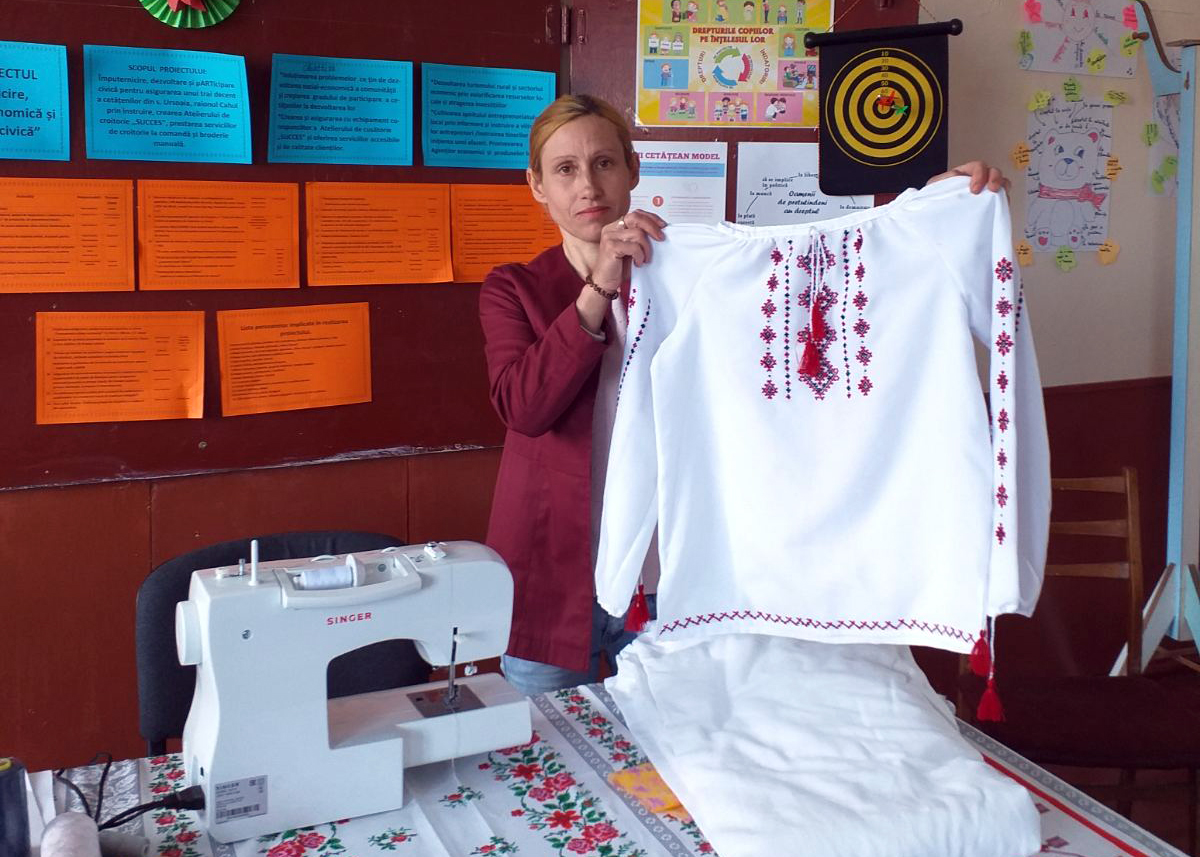
Local groups adapt quickly to meet COVID-19 needs
The power of community-led organizations has never been more pronounced than these last few weeks at Global Fund for Children.
While our belief that local organizations know best how to serve their communities, empower youth, and support children has been the core of GFC’s mission from day one, rarely is that impact better demonstrated than during a crisis.
And for the first time, the entire world is experiencing a crisis of untold proportions and everyone – from the wealthiest governments to the smallest family – is struggling to adapt.
Because of the coronavirus pandemic, the threats facing families and children around the world are urgent and our response cannot wait.
[image_caption caption=”A girl smiles from the doorway of her home after receiving food relief from her community. © Institute for Rural Initiatives” float=””]

[/image_caption]
Imagine you are a mother of three children in a small village in Moldova. Your main source of income are the dresses you make and sell around the area. A few weeks ago, there were rumors that some members of your community were showing symptoms of the coronavirus. But there hasn’t been much information from your mayor or government about the disease, so you don’t feel too worried about it.
Then, all of a sudden, the military is in your village, putting up barriers to prevent anyone from going in or going out. You are told to stay inside or you will be putting yourself, your children, and the community at risk of the virus. Your children are afraid and confused and you now must face the reality that you don’t have much money to purchase food and the military is not letting many supplies in.
You face an impossible choice: attempt to go out to sell your dresses and purchase food, or let your family go hungry for days, possibly weeks.
In this time of stress and uncertainty, GFC’s community-led partners are an irreplaceable lifeline for thousands of families around the world. We’ve heard from more than 50 of our current and alumni partners about the lifesaving work they are carrying out.
One such group is the Institute for Rural Initiatives (IRI) based in Moldova. I was fortunate to speak with Ruslan Stanga and Tatiana Costev, Co-Executive Directors from IRI, about how the coronavirus is impacting the country and their efforts to continue supporting Moldovans. The story above captures the kind of challenges that tens of thousands of Moldovans are facing.
Moldova is Europe’s poorest country, made up of mostly rural villages. Since 2014, IRI has organized Local Initiative Groups in Action (LIGA) to bring the concerns of these villages to the attention of commissions and mayors, so they are not left behind. The leaders of these groups include youth who are learning firsthand how to advocate for their communities.
In the wake of the coronavirus pandemic, however, Moldovan villages are facing a harsh reality under quarantine – villages suspected of having an outbreak are immediately shut down and cut off. The police and military block the community for 14 days, severely limiting the supplies that go in. Larger towns can secure food, but the over 1,000 villages in Moldova are struggling to get fresh food when they need it and for poorer families. This leads to a number of increased vulnerabilities, including hunger and starvation.
IRI knew that their groups were in a position to make a huge difference for rural families and children. Since the crisis began, they have mobilized LIGA groups in 19 villages across Moldova, assisting 73 families and 249 children. An additional 21 communities will be assisted in the coming weeks. The leaders of these groups know the families personally and can get the families the food and supplies that they need. IRI’s local leaders and facilitators are in close partnership with local authorities to raise funds so they can purchase more food and supplies.
Ruslan and Tatiana have every right to be proud of their local response. “We have been training these Local Initiative Groups for so long and now is when they are able to translate what they learned into reality,” Ruslan said.
[image_caption caption=”In rural Moldova, a family receives food relief thanks to the work of community action groups run by Institute for Rural Initiatives. © Institute for Rural Initiatives” float=””]

[/image_caption]
There is an added benefit to a local, human response to such a massive problem: those who are often most marginalized in the country – the impoverished, Roma groups alongside other ethnic minority groups, women and girls – now know that in their community, they have neighbors who care for them.
Tatiana emphasized the significant emotional boost to people receiving this kind of support from community members.
“People start thinking they aren’t valuable or no one cares. But when someone knocks on your door and leaves a food package, it helps… people to feel cared for and that they are still part of a community,” she said.
These LIGA groups that keep families fed are only the tip of the iceberg of IRI’s crisis response. They have helped to raise awareness about the disease and have cultivated online marketplaces on Facebook for people to continue selling their goods (dresses, potatoes, flowers, tomato and cucumber plants) to make an income.
My conversation with Ruslan and Tatiana truly demonstrated to me the powerful part that community organizations have, can, and will continue to play for hundreds and thousands of families and children.
GFC’s local partners all around the world are continuously shifting the work they were already doing – from educating children, to providing temporary housing, to empowering youth – and making sure the new needs created by the pandemic are met.
[image_caption caption=”Despite the quarantine, a LIGA group adapted to working remotely and was able to continue sewing national costumes, with support from Institute for Rural Initiatives. © Institute for Rural Initiatives” float=””]

[/image_caption]
Yet, for however long this pandemic lasts, as the world adjusts to the new normal, these organizations that formed relationships and responded to the needs of children, youth, and families before and during the pandemic will still be there long after. Feeding families. Educating children. Empowering youth.
Ruslan’s parting words to me captured the inspiring drive of community organizations as they continue their work: “Of course the world will not be the same, but let’s be optimistic: we have passion, we have energy, we have knowledge. I don’t see reasons to be more afraid than we should.”
Institute for Rural Initiatives has been a GFC partner since 2010. The organization is currently a cohort member of our Step Up Initiative, which builds a learning community of leaders over 18 months as they navigate issues of sustainability, organizational change, and leadership. IRI recently received a $25,000 grant from GFC as part of this initiative, which it is now using to support its response to the COVID-19 pandemic.
Header photo: Young people present their stories at the first Rural Youth Congress of the Republic of Moldova, an event organized by the Institute for Rural Initiatives in November 2019. © Institute of Rural Initiatives